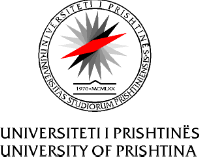Kosovo - Kosova Crisis |
As Tanjug [Yugoslav/Serbian News Agency] has been authorized to announce, the Belgrade district prosecutor has decided to introduce profesional standards in journalism and to teach journalists the "trade". The Authorities joined the most recent campaign of attacks by "patriotic" media on the independent media, which culminated with a commentary of RTS [Radio and Television of Serbia] on Friday, march 6. Atacks on independent media aren't new at all, since in 1991, it was anounced ... that it was OK to lie if it was in the national interest, and liars got a boost as never before. This most recent campaign, however, carries a new and very dangerous element. Before, it was required that professional journalists ... omit unpleasant truths, if possible, if they were really disgusted; now, RTS and the district prosecutor have introduced the obligation of lying.
What is being objected to by journalists that don't want to howl in the same pack with "patriotic" media? RTS explains what the district prosecutor wanted to say: "While most of the media relies on the official statements of MUP [The Interior Ministry] of Serbia, independent media have found and use other sources of information which "can only suit terrorists". Hence the district prosecutor has undertaken "appropriate measures towards editors" of five daily newspapers and some TV stations, since that kind of writting "encourages actions of terrorist gangs and falsly represents measures that members of MUP have undertaken against terrorists in Kosovo and Metohija" 2.
RTS objects to independent media terminology as well: if it's to be judged by the terminology of RTS and Tanjug, guilty is just about anyone who doesn't use the term "Shqiptari gangs" 3.
RTS gives further lessons: how come there are 25 dead when police says the number is only 16? What "Albanians", when those were terrorists? Who do journalists believe: police statements or their own eyes?
Police statements are precious source of information only if they are not contradictory, confused and incomplete - as were the were police statements in the last ten or so days of Kosovo crisis. Police were preventing journalists from getting through to the scene; but some of them managed to get through, they saw and they reported. From what they saw and heard, some very unpleasant questions [arise]: did the police act as a police or as an army? Did all civilians killed in action die with arms in hands? Are there any women, elderly, underaged? Did the police adhere to law and rules of conduct? Were examining judges present afterward? There is no need to go further than that.
It [turns out] that 25, not 16, civilians from Likosani and C'irez met violent deaths. Where did those 9 come from? We all remember the incident in Pakrac on March 2, 1991, when "patriotic" media screamed about "bursts of fire into the people" and "40 dead in Pakrac"; fortunately, it turned out that there was no wounded, never mind dead. Profesional journalists, those who deal with facts, were atacked then as they are now as "traitors", because they didn't want to lie - just as they don't want to lie today. And, it's easier to lie in company...
If district prosecutor wants to introduce some new profesional rules, he should openly say: there is no more reporting from the scene, only one source of information is going to be used; terminology is going to be dictated by RTS; hence, all other public media are superfluous since we have RTS. If someone disagrees, "appropriate" measures follow - what these measures might be, lawyers aren't quite certain. Anyway, independent media look like they have become the state enemy number one, so we shall find something for them. Independent media were [the cause of economic problems]; now they are being blamed in advance for the escalation of the Kosovo crisis and the consequences that are going to follow.
That brings misgivings; not because of the independent media, but because of this state [Serbia], every time when things like this happen, defeats and tragedies follow.
A similar game that
was played with certain terms could have been noticed in Bosnia
as well, terms "Bosnian" and "Bosniak" (for Bosnian Muslims) have
been intentionally both internationally and internally
used-missused in order to justify certain claims, especially
those teritorial ones, like, if "we" call ourselves "Bosnians",
than that means that the "land" is solely "ours", never mind the
fact that the population mentioned here calls itself differently
than what their "own" leadership calls them).






